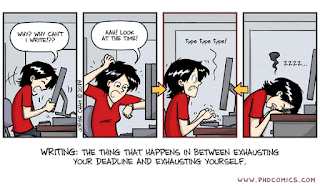Re-adjust and reset your perspective and mindset ASAP
- PhD is a whole different ball game to UG or PGT study
- No two PhDs are the same - So don't compare with others
- Apprenticeship in 'Scientific Thinking' - a transferable skill set
- Unstructured days to be structured by you
- No exams, modules, worked examples, set learning pieces, grades or known answers
- Feedback supplied differently - via supervisor relationships, confirmation and end of year reviews and peer review
- Sign up to one of the Graduate School's Nature of the Doctorate, Nature of the Engineering Doctorate or online Understanding your Research Degree courses to explore the differences in more detail.











